Measure The Thermal Properties of Geopolymer
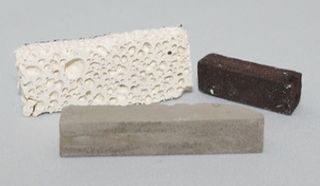
Geopolymer is a kind of new material (based on the invention of Viktor Glukovsky in 1950s), which combines the characteristics of organic matter, ceramics, cement, and it is an excellent alkali-activated cementitious material. Alkali-activated cementitious material has much better characteristics than the conventional Portland cement, it the behaviors of high compressive strength, corrosion resistance, permeation resistance, durability, etc. In addition, geopolymer, can be produced from the industrial waste (such as high temperature slag, fly ash) to produce, nowadays, it became very popular in the related research, because of its environment friendly nature.
The common applications of geopolymer are many today, such as:
- Fire retardant binders
- Thermal shock refractories
- VLO Aircraft runways
- Protective coatings
One needs to have the thermal characteristics of these geopolymer materials, in order to understand the capability of these geopolymer. Here come an example, in which the C-Therm TCi Thermal Conductivity Analyzer and DiL Dilatometer is used in the analyzing. These geopolymers include:
| Geopolymer | Description |
| GP | Geopolymer Paste |
| GP5W | GP with 5 volume % of Nyad MG wollastonite |
| GP5A | GP with 5vo|ume%of -325 pound milled alumina |
| Geopolymer Foam | Metakaolin based geopolymer foam |
| GP42A2.5W | GP plus 42 volume % alumina and 2.5 volume % wollastonite |
| GP53A2W | GP plus 53 volume % graded alumina and 2 volume % wollastonite |
Experimental Example
The thermal conductivity of each geopolymer was measured at room temperature, 100°C and 200°C using a C-Therm TCi Thermal Conductivity Analyzer: And the samples were baked for an average of 4 hours prior to observation of thermal conductivity at elevated temperature.
The thermal expansion data were measured using a 1200°C, by a single channel C-Therm DiL Dilatometer (complaint with ASTM E228), with heating rate: 5°C/min. And the temperature profile is Room temperature to 1150°C, by the calibration material, NIST SRM 738 Single-Crystal Sapphire Contact Force: 1N
The thermal conductivities of the geopolymer materials listed in the above table, are measured in Room Temperature, 100°C, 200°C:
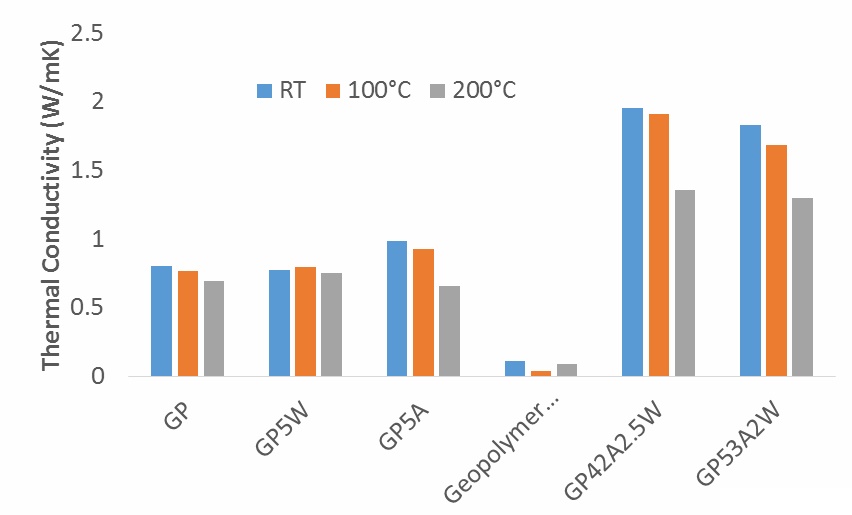
The dilatometry of the geopolymer, GP42A2.5W is measured by DiL Dilatometer, which shows the common behavior of geopolymer.
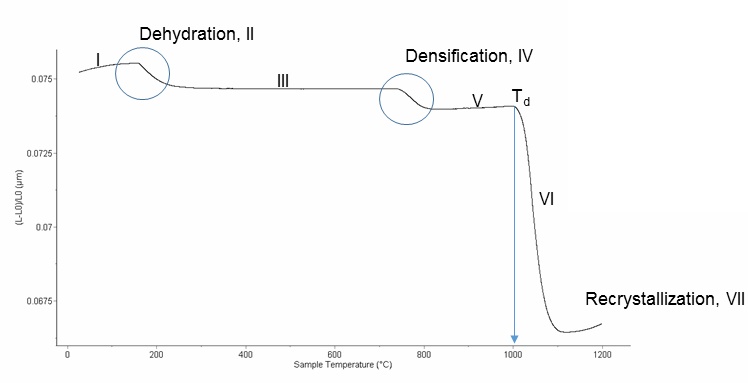
However, to the geopolymer, GP5W, there are something special, during the heating and measuring procedure of DiL Dilatometer.
We can see, there are second densification or possible chemical reaction was happened. It’s worth to have further investigation.
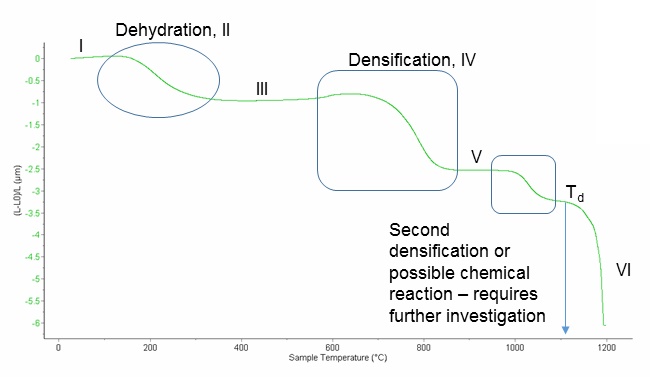
By the further analysis, we can understand that that there are no phase change nor glass transition from room temperature to 1000 °C, however, the glass transition was started around 1000 °C, and there was densification or chemical reaction around 1100 °C.
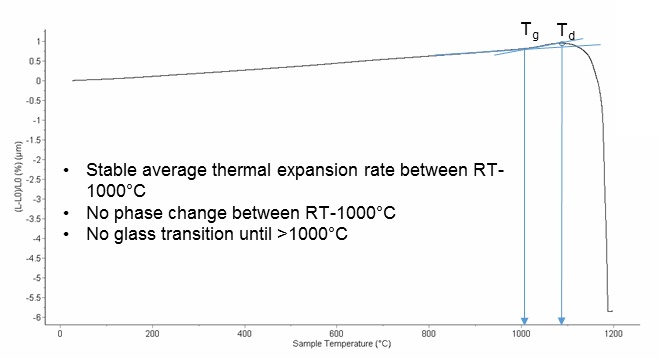
This experimental results the following conclusions:
- 6 novel geopolymer formulations have been characterized for thermal conductivity.
- Four have also been characterized for thermal expansion behavior
- Two showed obvious chemical changes and were re-fired to characterize the difference between fired and unfired material
- Results were summarized in a table of average oz
- The data collected show that geopolymer foam possesses the best thermal conductivity for insulation applications, while GP42A2.5W has the highest thermal conductivity.
- Thermal expansion data was collected and summarized in a tabular format for ease of engineering applications
- Geopolymer is promised as a material for high- temperature applications, lacking phase changes or glass transition below 1000°C
C-Therm Thermal Conductivity Analyzer, Dilatometer
C-Therm Technologies provides sensor solutions for R&D, manufacturing and quality control environments, offering the latest in rapid, non-destructive thermal analysis instrumentation.
The C-Therm TCi thermal conductivity analyzer is, simply put, the fastest and most user-friendly means of thermal conductivity analysis on the market, with test times as short as one second. C-Therm DiL horizontal dilatometers offer high resolution and stability across a broad measurement range (ambient up to 1600°C).
With unparalleled ease-of-use, high adaptability, and modular design, C-Therm dilatometers offer researchers a robust cost-effective solution to their characterization needs. Make thermophysical property analysis easy and accessible with a C-Therm instrument.